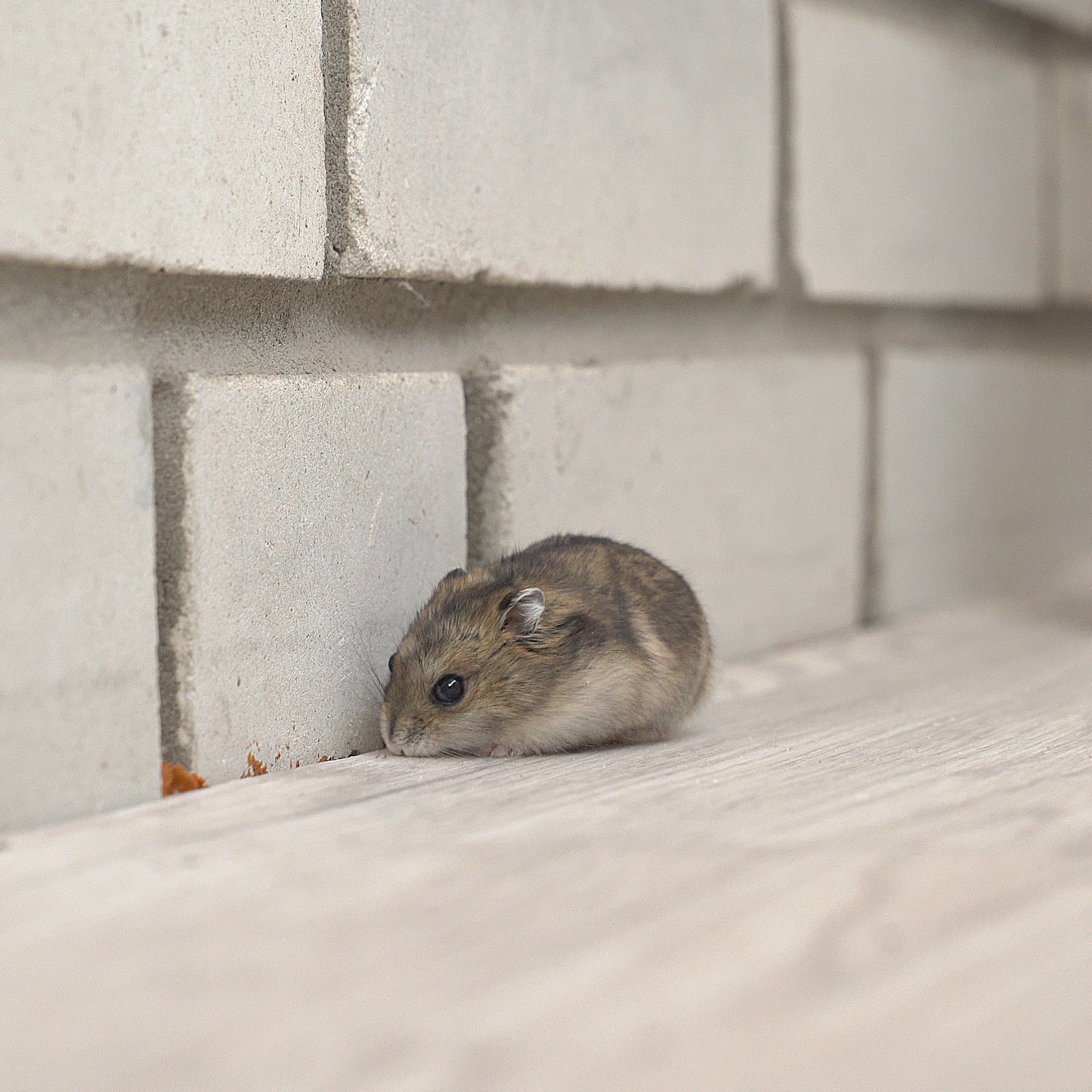Comprehensive Rat and Mice Control: Safeguard Your Home from Rodent Infestations
Rat and Mice Control: Protect Your Home from Rodent Infestations
Rats and mice are more than just a nuisance—they pose significant health risks and can cause costly damage to your home or business. These rodents are known to spread diseases, contaminate food, and chew through wires, insulation, and structural materials, potentially leading to fires or structural damage. At SAPPHIRE Pest Control, we specialize in the safe and effective removal of rats and mice, ensuring your home stays rodent-free and secure.
Why Rodents Are Dangerous
Rats and mice are carriers of various diseases and bacteria that can pose serious health threats to humans and pets. Some of the common diseases spread by rodents include:
- Hantavirus: Spread through rodent droppings, urine, or saliva, hantavirus can cause respiratory issues and even be fatal in severe cases.
- Salmonella: Rats and mice can contaminate food and surfaces with salmonella bacteria, leading to foodborne illness.
- Leptospirosis: This bacterial infection, often transmitted through rodent urine, can cause liver and kidney damage.
Contact Us
We will get back to you as soon as possible
Please try again later
In addition to the health risks, rodents can cause extensive property damage. Their constant gnawing can ruin furniture, damage electrical wiring, and create holes in walls or floors. A rat or mouse infestation can quickly escalate, leading to structural issues that require costly repairs.
Signs of a Rodent Infestation
Rats and mice are nocturnal creatures, so you may not see them during the day. However, there are several signs that can indicate the presence of a rodent problem in your home:
- Droppings: Rodent droppings are often found near food sources, in cupboards, or along baseboards. Mouse droppings are small and pellet-like, while rat droppings are larger and more cylindrical.
- Gnaw marks: Rats and mice constantly chew on objects to keep their teeth sharp. You may notice gnaw marks on furniture, wires, or packaging.
- Nests: Rodents build nests using shredded paper, fabric, or insulation. Nests are usually hidden in attics, basements, or behind walls.
- Noises: Scratching, scurrying, or gnawing sounds coming from the walls, attic, or ceiling may indicate the presence of rodents.
- Grease marks: Rats and mice have oily fur, and they often leave dark, greasy smudges along walls, floors, or other areas they frequently travel.
- Damaged food packaging: Rodents will chew through bags, boxes, and containers to access food. If you notice chewed-up packaging in your pantry, it could be a sign of an infestation.
Common Types of Rodents
- Norway Rats: These large rats are commonly found in basements, crawl spaces, and sewers. They are excellent burrowers and tend to build their nests underground.
- Roof Rats: Smaller and more agile than Norway rats, roof rats are commonly found in attics, ceilings, and upper levels of buildings. They are skilled climbers and often enter homes through gaps in the roof or walls.
- House Mice: House mice are the most common rodent found in homes. They are small, agile, and reproduce quickly. House mice tend to nest in small, dark spaces close to food and water sources.
Our Rodent Control Process
At SAPPHIRE Pest Control, we use a comprehensive approach to rodent control to ensure that your home is rodent-free and protected from future infestations:
- Inspection: Our experienced technicians conduct a thorough inspection of your home or business to identify signs of rodent activity, entry points, and nesting areas. We also assess the level of infestation to determine the best treatment plan.
- Instruction to Block Entry Points: We will advise how to block any potential entry points that rodents may use to access your home. This includes addressing gaps in walls, around doors, windows, and the roof. By effectively blocking these entry points, this will prevent future infestations.
- Removal: We use mouse traps to remove rats and mice from your property. Depending on the severity of the infestation, we also use glue traps, bait stations and rodent-proof traps to ensure the problem is resolved.
- Sanitization and Decontamination: Once the rodents are removed, we provide cleaning and sanitization services to eliminate any droppings, urine, or contamination left behind by the infestation. This reduces the risk of disease and restores your home’s cleanliness.
- Follow-Up and Prevention: To ensure the infestation is fully eradicated, we offer follow-up visits to monitor the situation. We also provide advice and recommendations on how to keep your home rodent-free, including storing food in sealed containers and maintaining a clean, clutter-free environment.
Health Risks of Rodent Infestations
Rats and mice pose several health hazards, not only through direct contact but also through the bacteria and allergens they leave behind. Some of the health risks associated with rodent infestations include:
- Allergies and asthma: Rodent urine, droppings, and dander can exacerbate allergies and asthma, especially in children.
- Contaminated food: Rats and mice can contaminate food with their droppings, saliva, and urine, leading to foodborne illnesses.
- Parasites: Rodents are known to carry fleas, mites, and ticks, which can be transferred to humans and pets, increasing the risk of additional pest infestations.
Preventing Rodent Infestations
To reduce the risk of a rat or mouse infestation, consider taking the following preventative measures:
- Seal entry points: Close off gaps around doors, windows, pipes, and vents to prevent rodents from entering your home.
- Store food properly: Keep food in airtight containers and store pet food off the floor.
- Remove clutter: Rodents like to hide in cluttered areas, so keep storage spaces tidy and organized.
- Maintain cleanliness: Regularly clean floors, countertops, and areas where food is prepared or consumed.
- Eliminate water sources: Fix leaky faucets and pipes, and remove any standing water that may attract rodents.
Contact SAPPHIRE Pest Control for Rodent Removal
If you suspect a rodent infestation, don’t wait to take action. Rats and mice reproduce quickly, and a small problem can escalate into a serious infestation if left untreated. At SAPPHIRE Pest Control, we provide fast, effective, and safe rodent control services to eliminate rats and mice from your home. Contact us today to schedule an inspection and take the first step toward a rodent-free home.
Call Us Today at
903-456-7816 or
The Centers for Disease Control and Prevention (CDC) report that rodents are a significant contributor to the spread of allergens, increasing the risk of asthma in homes with infestations.
- A single pair of mice can produce up to 60 offspring in a year, with each female capable of having 5-10 litters per year.
- Rats and mice can spread more than 35 diseases, including hantavirus, leptospirosis, and salmonella, through their droppings, urine, and saliva.
37%
of homeowners in the U.S. reported seeing a rodent in their home in the last year, according to the National Pest Management Association (NPMA).
25%
of house fires in the U.S. are attributed to damage caused by rodents chewing on electrical wiring.
50%
of homeowners who experience a rodent infestation never realize they have a problem until the damage is already done. Early detection and professional intervention are crucial to prevent costly rodent damage.

How do I know if I have a rat or mouse infestation?
Common signs of a rodent infestation include:
- Droppings around food sources or in hidden areas.
- Gnaw marks on furniture, wires, or packaging.
- Scratching or scurrying sounds in walls or ceilings.
- Nests made of shredded material like paper or fabric.
- Grease marks along walls from rodent fur.
What attracts rats and mice to my home?
Rats and mice are attracted to homes by food, water, and shelter. Unsealed food, pet food, clutter, and unsecured garbage can all attract rodents. They also seek out warm, dry spaces for nesting, particularly during colder months.
How quickly do rats and mice reproduce?
Both rats and mice reproduce rapidly. A pair of rats can produce up to 2,000 descendants in a year under optimal conditions, while a pair of mice can have up to 60 offspring annually. This makes it essential to address infestations early before populations grow out of control.
How does professional rodent control work?
Professional rodent control starts with a thorough inspection to identify the extent of the infestation and entry points. This is followed by a combination of exclusion methods (sealing entry points), trapping, and removal. In severe cases, bait stations may be used, and follow-up visits are often recommended to ensure the problem is resolved.
How can I prevent rats and mice from entering my home?
- Seal all cracks, gaps, and holes around your home's exterior.
- Keep food stored in airtight containers and clean up spills immediately.
- Dispose of garbage in sealed bins and remove clutter that may provide nesting areas.
- Regularly inspect your home for signs of rodents and fix any potential entry points.
Are your rodent control treatments safe for my family and pets?
Yes, our treatments prioritize the safety of your family and pets. We use humane traps and safe, targeted methods to eliminate rodents while minimizing any risk to people and animals. Our exclusion methods focus on preventing future infestations without the need for chemicals.

